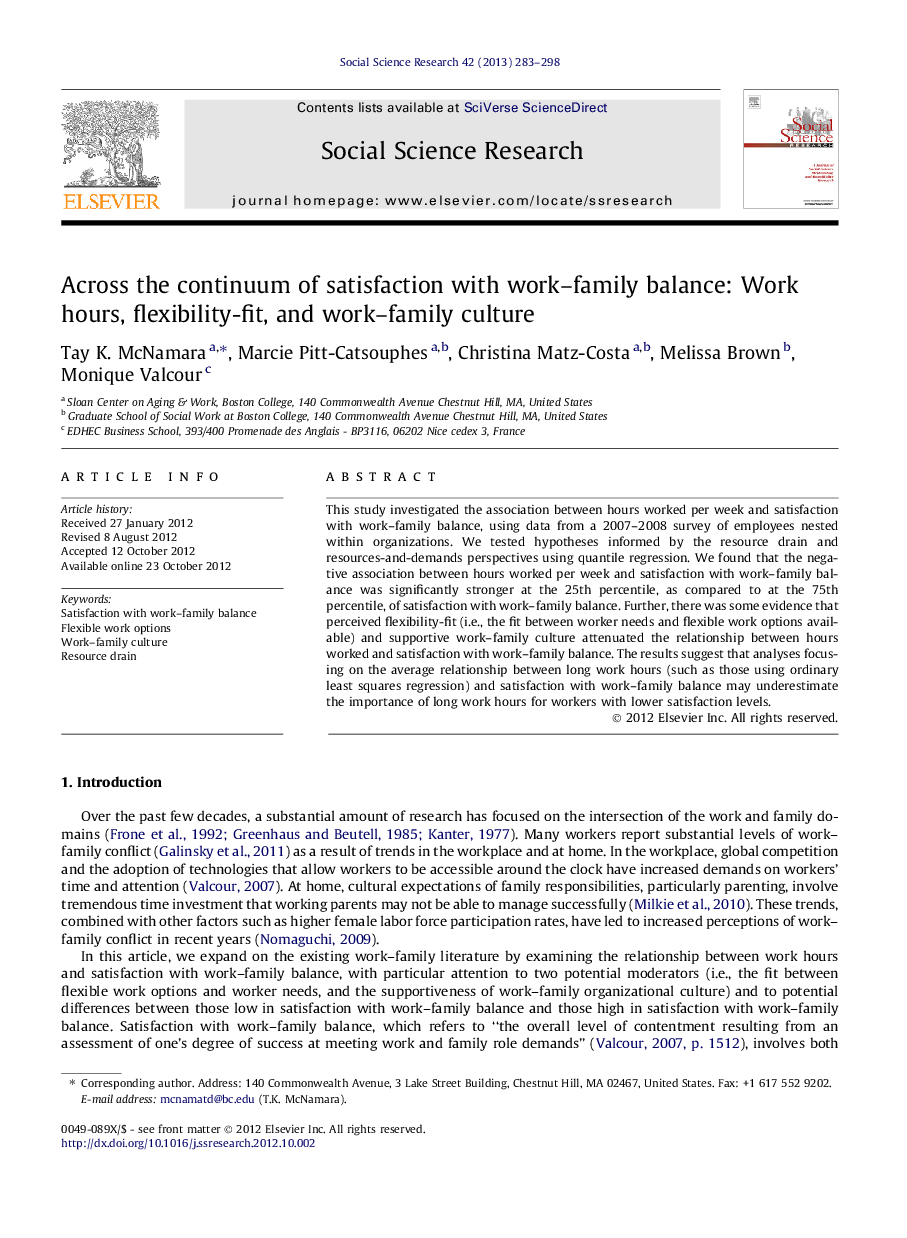| Article ID | Journal | Published Year | Pages | File Type |
|---|---|---|---|---|
| 955894 | Social Science Research | 2013 | 16 Pages |
This study investigated the association between hours worked per week and satisfaction with work–family balance, using data from a 2007–2008 survey of employees nested within organizations. We tested hypotheses informed by the resource drain and resources-and-demands perspectives using quantile regression. We found that the negative association between hours worked per week and satisfaction with work–family balance was significantly stronger at the 25th percentile, as compared to at the 75th percentile, of satisfaction with work–family balance. Further, there was some evidence that perceived flexibility-fit (i.e., the fit between worker needs and flexible work options available) and supportive work–family culture attenuated the relationship between hours worked and satisfaction with work–family balance. The results suggest that analyses focusing on the average relationship between long work hours (such as those using ordinary least squares regression) and satisfaction with work–family balance may underestimate the importance of long work hours for workers with lower satisfaction levels.
► We examine the relationship between hours worked and satisfaction with work–family balance. ► Longer hours worked are linked with lower satisfaction with work–family balance. ► The role of long hours differs by level of satisfaction with work–family balance. ► Having flexible policies that fit needs mitigates the role of long hours. ► Supportive work–family culture mitigates the role of long hours.
